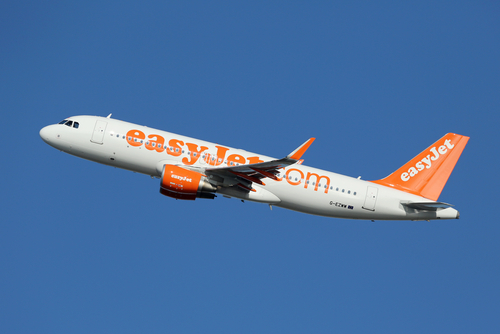Experienced Investor
EasyJet posts record profits but can it continue to fly high?

Last week, EasyJet celebrated its 20th birthday and the celebrations continued this week with the company posting record profits for the fifth year running.
Pre-tax profits for the year to the end of September jumped 18 per cent to £686m, while revenues were up 3.5 per cent to £4.69bn.
The budget airline has cut prices this year on the back of stagnant oil prices, and has seen demand soar thanks to wage growth, a favourable pound to euro exchange rate and non-existent inflation.
EasyJet investors have cause to celebrate as the results have raised basic earnings per share by 21.5 per cent compared to the same period last year, and dividends have been lifted by 22 per cent.
Analysts believe this soaring success story will continue.
Richard Hunter, head of equities at Hargreaves Lansdown, says the firm’s load factor [utilised passenger capacity] remains in excess of 91 per cent, and hails it as testament to the efficiency of EasyJet’s business model.

Wellness and wellbeing holidays: Travel insurance is essential for your peace of mind
Out of the pandemic lockdowns, there’s a greater emphasis on wellbeing and wellness, with
Sponsored by Post Office
“The impressive performance has been achieved despite currency headwinds, a French air traffic control strike and the fire in Rome during the year,” he says.
Hunter also notes EasyJet is expanding into Germany, Holland and Portugal, adding to an already-sizeable European portfolio. He maintains an “upbeat outlook” on the company’s future.
He says: “EasyJet continues to paint a bright picture, shares having risen 15 per cent over the last year, as compared to a wider FTSE100 which has dropped 8 per cent. Both the numbers and the company’s outlook are positive, as is the market itself, with the general view of the shares as a buy likely to be consolidated.”
Ian Forrest, investment research analyst at The Share Centre, is equally bullish on EasyJet’s prospects.
“EasyJet goes into 2016 confident that lower fuel costs, structural cost savings and increased capacity should be supportive of its expectations for the next financial year,” he says.
Despite the firm’s ability to weather this year’s headwinds relatively unscathed, investors should bear in mind unforeseen events remain a major risk for travel and leisure stocks. Recent atrocities in France and Sharm El Sheikh could temper demand.
“Geopolitical events around the world impact travel shares,” says Joel Dungate, investment analyst at Redmayne-Bentley.
“Many suffered setbacks at the end of last year as news broke a Spanish nurse fell ill with Ebola, and concerns mounted the virus could spread.”
Such surprise events are dubbed ‘black swans’; they can be company, sector or even country-specific, and by definition can come out of nowhere.
“The shocking events of the weekend are a stark reminder of the exogenous factors with which the airline industry has to deal,” says Hunter.
He notes airport taxes and higher costs also remain a threat. The current boom in travel is at least partially dependent on rock-bottom oil prices, and a rise could mean higher travelling costs and ticket prices, and less spending on tourism as a result.
The prospect of rising interest rates on both sides of the Atlantic may also be a concern for investors, as this will mean higher borrowing costs, and the prospect of reduced discretionary spending – the fundamental driver of travel.
Despite these issues, Forrest remains bullish on EasyJet, favouring the stock over any other in the sector.
“We currently recommend the group as a ‘buy’ for medium-risk investors,” he says.
“Better economic prospects in Europe, growing capacity and an effective management team are all positive long-term factors for investors.”
[article_related_posts]